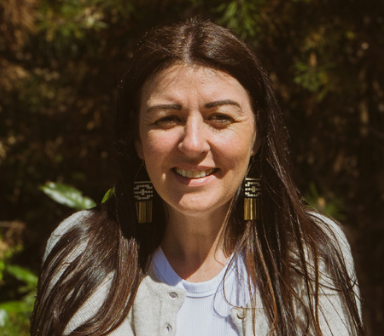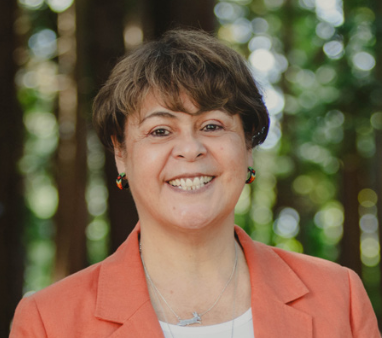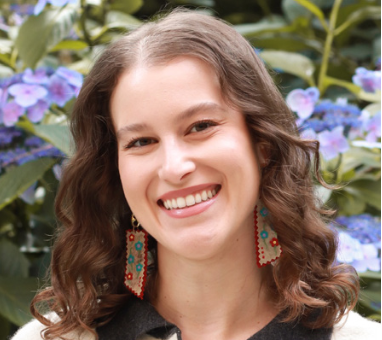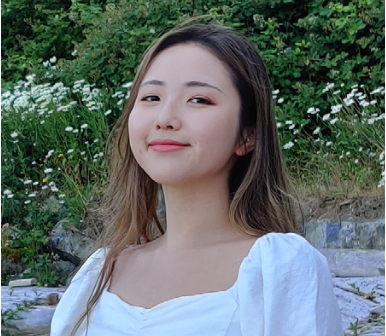Making Connections to the Local: Exploring the Role of Indigenous Literature in Early Childhood Education
by Lori Huston, Jan Hare, Ashleigh Janis, and Leigh Kweon
In following Indigenous protocol, we acknowledge that this paper was written on the traditional, ancestral, and unceded territories of the Musqueam Peoples, whose enduring commitment to self- determination has supported the strength of their Nation amidst a destructive colonial landscape. Our work began with a shared interest in nurturing early childhood educational spaces where Indigenous knowing, being, and doing are upheld, specifically through collaborative efforts on a massive open online course (MOOC) titled “Nurturing Childhoods Through Indigenous Ways of Knowing.” Our team comprises diverse backgrounds, reflecting the intersectionality inherent in our approach to Indigenous education. Dr. Jan Hare identifies as an Anishinaabe scholar and educator from the M’Chigeeng First Nation; Lori Huston, a PhD candidate in curriculum studies, identifies as a Red River Métis with British ancestry, raised on Treaty 3 Territory; Leigh Kweon is an immigrant settler raised on traditional Sto:lo and Coast Salish territories; and Ashleigh Janis is a White settler with Ukrainian and Polish ancestry, raised on Treaty 1 Territory. Our roles have encompassed various aspects of course development including curating Indigenous children’s literature resources for the MOOC and facilitating knowledge- sharing through hosting a workshop.
The current paper is situated in the Canadian context, where Indigenous Peoples have stewarded these lands since time immemorial. When we refer to Indigenous Peoples, we are referring to the connected, yet distinct, identities of First Nations, Métis, and Inuit—each of which holds considerable diversity in their languages, worldviews, practices, and knowledge systems from coast to coast, as well as unique rights. Canadian society continues to navigate Indigenous-settler relations, as seen by continuing movements for reconciliation, decolonization, and Indigenous resurgence and self-determination. In 2015, the Truth and Reconciliation Commission of Canada released a list of 94 Calls to Action, intended to reconcile colonial histories that have created social, political, economic, health, and educational inequities for Indigenous Peoples living in Canada, and urged government intervention in all societal institutions. This paper is particularly aligned with Call to Action 12, which outlines the need for a culturally appropriate curriculum for Indigenous children in early childhood education. In the realm of early childhood education, the importance of culturally responsive approaches cannot be overstated, particularly within Indigenous contexts where cultural identity and literacy learning are deeply intertwined and where resources tend to be limited. While rooted in Canada, these approaches can provide a model for educators more broadly, especially for those who aspire to integrate Indigenous histories, perspectives, and knowledges within their classrooms through the experience of Indigenous children’s literature. By centering cultural authenticity, respect, and collaboration, educators can foster inclusive and decolonized educational practices globally.
 Lori Huston is a Métis scholar and doctoral candidate in Curriculum Studies at the University of British Columbia. Her research centers on Indigenous early childhood education, exploring how local First Nation knowledge and teaching practices can guide a heart-centered approach to education that helps reclaim cultural knowledge and strengthen Indigenous sovereignty.
Lori Huston is a Métis scholar and doctoral candidate in Curriculum Studies at the University of British Columbia. Her research centers on Indigenous early childhood education, exploring how local First Nation knowledge and teaching practices can guide a heart-centered approach to education that helps reclaim cultural knowledge and strengthen Indigenous sovereignty.
 Dr. Jan Hare is an Anishinaabe scholar and educator from the M’Chigeeng First Nation in northern Ontario. She is dean and professor in the Faculty of Education at the University of British Columbia. Dr. Hare holds a Canada Research Chair (Tier 1) in Indigenous Pedagogy, focusing on the complex processes of teaching from Indigenous knowledge frameworks.
Dr. Jan Hare is an Anishinaabe scholar and educator from the M’Chigeeng First Nation in northern Ontario. She is dean and professor in the Faculty of Education at the University of British Columbia. Dr. Hare holds a Canada Research Chair (Tier 1) in Indigenous Pedagogy, focusing on the complex processes of teaching from Indigenous knowledge frameworks.
 Ashleigh Janis is a White settler with Ukrainian and Polish ancestry. She is a PhD student in the Department of Curriculum and Pedagogy at the University of British Columbia and a researcher with Ongomiizwin Research at the University of Manitoba. Her research is focused on supporting anti-racism and decolonization in early childhood education.
Ashleigh Janis is a White settler with Ukrainian and Polish ancestry. She is a PhD student in the Department of Curriculum and Pedagogy at the University of British Columbia and a researcher with Ongomiizwin Research at the University of Manitoba. Her research is focused on supporting anti-racism and decolonization in early childhood education.
 Leigh Kweon is a 1.5-generation immigrant settler of South Korean ancestry. She is an MA student in the Department of Curriculum and Pedagogy at the University of British Columbia. Her research is around concerns of responsibility and conscience of an immigrant settler living on stolen lands. With a background in early learning and curriculum work with young children, her current work as an early childhood education instructor is grounded in questions about settler colonial subjectivities.
Leigh Kweon is a 1.5-generation immigrant settler of South Korean ancestry. She is an MA student in the Department of Curriculum and Pedagogy at the University of British Columbia. Her research is around concerns of responsibility and conscience of an immigrant settler living on stolen lands. With a background in early learning and curriculum work with young children, her current work as an early childhood education instructor is grounded in questions about settler colonial subjectivities.